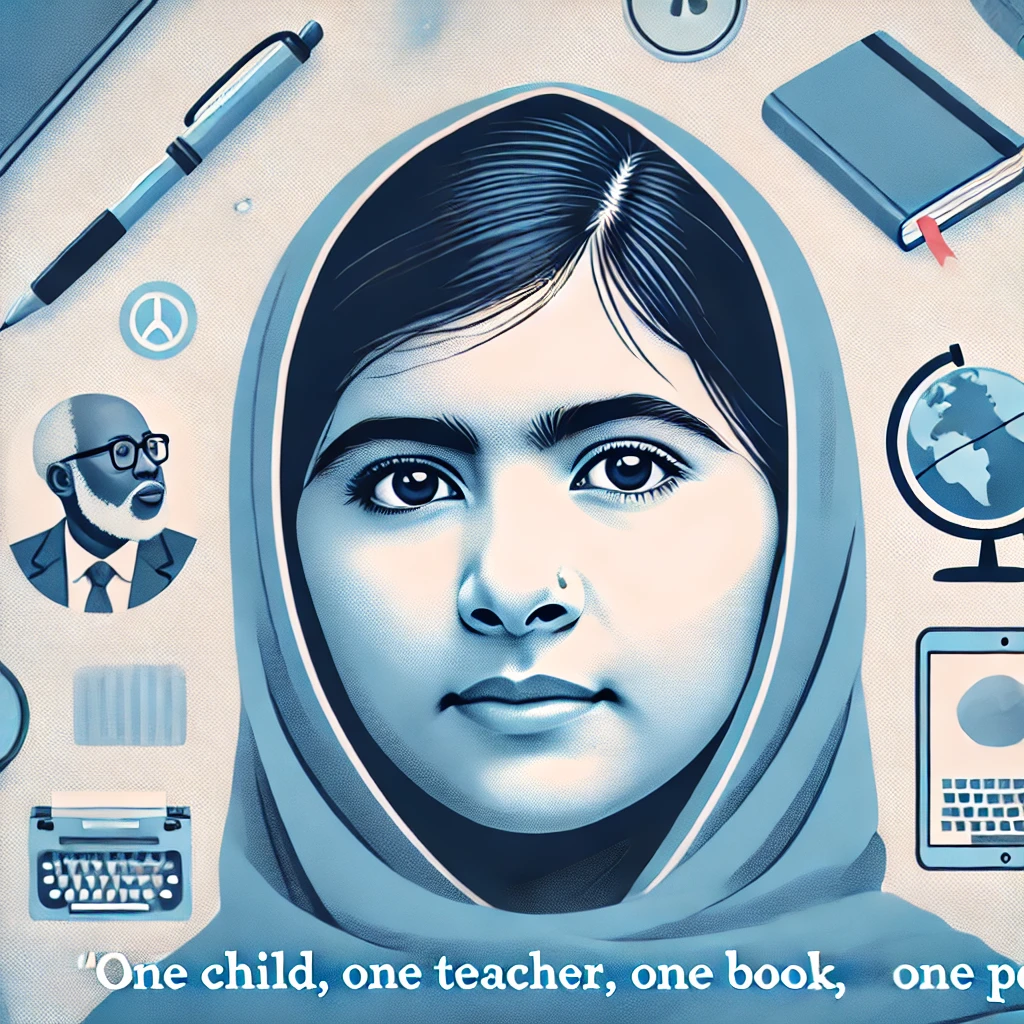Malala Yousafzai, born on July 12, 1997, in the Swat Valley of Pakistan, is a symbol of courage, resilience, and the relentless pursuit of education for all. Her journey from a remote region in Pakistan to becoming the youngest Nobel Prize laureate in history is nothing short of extraordinary. Malala’s story is a powerful testament to the importance of education and the courage to stand up against oppression.
Early Life and Advocacy
Growing up in a region where the Taliban sought to impose strict interpretations of Islamic law, Malala was exposed to the harsh realities of gender inequality from a young age. Her father, Ziauddin Yousafzai, was a passionate educator who ran a school in Swat. He instilled in Malala a love for learning and a belief in the power of education to transform lives. Despite the increasing threats from the Taliban, who opposed the education of girls, Malala continued to attend school, determined to pursue her dreams.
At just 11 years old, Malala began writing a blog for the BBC under a pseudonym, chronicling her experiences living under Taliban rule and advocating for girls’ education. Her words resonated with many, and she quickly became a prominent voice for children’s rights in her community. As the Taliban’s grip on the region tightened, Malala’s advocacy put her in increasing danger, but she remained undeterred.
The Attack and Global Outcry
On October 9, 2012, Malala’s life changed forever. While riding the bus home from school, she was targeted and shot in the head by a Taliban gunman. The attack, meant to silence her, sparked global outrage and brought international attention to the plight of girls in Pakistan and other regions where education is suppressed. Malala was critically injured and was airlifted to Birmingham, UK, for treatment.
Miraculously, Malala survived the attack, and her recovery was nothing short of remarkable. Instead of retreating into silence, she emerged even stronger, determined to continue her fight for education. The world rallied around her, with support pouring in from every corner of the globe. The Malala Fund was established to advocate for girls’ education worldwide, and Malala became a global symbol of resistance against oppression.
Becoming the Youngest Nobel Laureate
In 2014, at the age of 17, Malala Yousafzai was awarded the Nobel Peace Prize, making her the youngest-ever recipient of the prestigious award. She shared the prize with Kailash Satyarthi, an Indian children’s rights activist, in recognition of their struggles against the suppression of children and young people and for the right of all children to education. Malala’s acceptance speech was a powerful call to action, emphasizing that education is the key to peace and development.


Leave a Reply